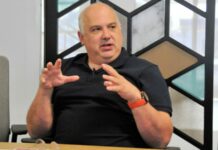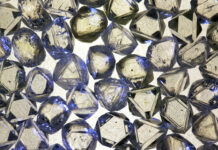
[miningmx.com] — SCHARRIG Mining has been steadily built up by the controlling Scharrighuisen family since the early Seventies. While for much of the time growth was mainly organic as Scharrig grew into a major contract opencast coal miner, it’s now turning to acquisitions to fulfil its ambition of becoming Africa’s leading mining services company.
Over the past year, it’s made two major acquisitions. First came Geosearch, Africa’s largest mining exploration driller, whose 800-plus employees operate 60 rigs. Then it bought Benicon, another opencast contractor whose operations complement Scharrig’s and with a similar geographical footprint. But while Scharrig’s major clients were BHP Billiton and Eyesizwe Coal, Benicon’s is Anglo Coal. Scharrig thus now operates on behalf of South Africa’s two biggest coal miners.
On top of that, Scharrig has appointed Robin Berry (44), formerly CEO operations at Anglo Coal, as an executive director and COO as from 1 January. Anglo Coal produces 60 million tons/year of coal and employs 8,000 people, so it’s significant that Berry has enough confidence to have moved to what is still a much smaller company. Scharrig pre-Benicon was probably mining under contract just under 20 million tons/year.
Berry’s confidence is obviously shared by Sam Jonah, the internationally respected Ghanaian businessman who, through his Sankofa Trust, bought 15 million shares at 525c last year. That takes his trust’s stake to 25% with a view to assuming the chair – as he since has. With Scharrig now at 1,090c/share, that deal has already paid off handsomely.
Despite a severe setback and consequent big loss in financial year 1999, which saw the share tumble to a low of 11c in 2000, between 1996 and 2006 turnover increased from R221m to R616m, attributable earnings from R14m to R89m, headline earnings per share from 10.0c to 69.3c and dividends from 4c to 12c. In the six months to September 2006, headline earnings per share (HEPS) rose from 31.0c to 43.5c and the interim dividend from 5c to 7c.
On the past 12 months, that gives HEPS of 81.8c and dividends of 14c. Even assuming similar growth in the second half, that puts the share on a demanding rating. But it’s been a superb long-term holding and there’s every reason to expect that it will remain so.











